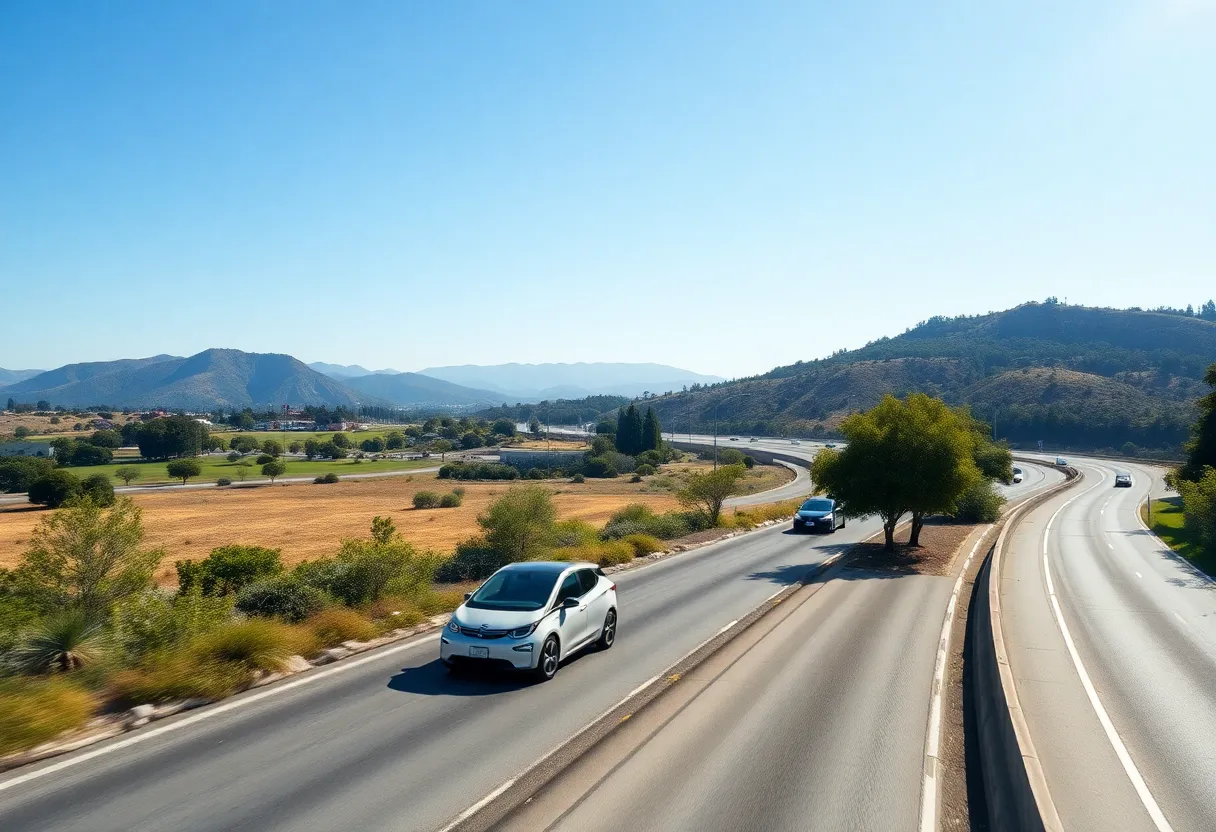News Summary
California Governor Gavin Newsom plans to legally contest a recent Senate vote aimed at revoking the EPA waiver that allows the state to set its own emissions standards. The Senate’s resolution, passed with a 51-44 vote, seeks to overturn California’s regulation prohibiting new gas-powered vehicles by 2035. This move has garnered criticism from Democrats, who argue it’s a misuse of legislative power. California has been a leader in environmental policy, and Newsom argues this repeal could reverse significant progress in air quality and public health.
California Governor Gavin Newsom to Challenge Senate Vote on Emissions Standards in Court
California Governor Gavin Newsom announced plans to legally contest the recent Senate vote that aims to revoke the Environmental Protection Agency (EPA) waiver, which enables the state to establish its own emissions standards. This decision follows the Senate’s passage of a resolution by a vote of 51-44, which seeks to overturn California’s regulation prohibiting the sale of new gas-powered vehicles by the year 2035.
The Senate’s resolution has sparked significant controversy. Many Democrats have criticized the action as a misuse of legislative power, referring to it as a “nuclear” option. The Government Accountability Office (GAO) and the Senate parliamentarian have indicated that EPA waivers are not subject to the Congressional Review Act, suggesting that the vote to revoke them may lack legal standing.
This legislative action mirrors discussions that occurred earlier in the House, where similar resolutions were approved. It is anticipated that President Trump, who has expressed support for rolling back California’s emissions standards, will sign these resolutions into law.
Opposition Voices Concerns
Senate Majority Leader John Thune defended the resolution, arguing that California’s waivers impose what he characterized as an unrealistic electric vehicle mandate nationally, which he claims is too expensive. In contrast, California’s Democratic senators, including Alex Padilla, Sheldon Whitehouse, and Chuck Schumer, lamented the vote’s potential impact on air quality and public health, warning that it could lead to increased pollution throughout the country.
The California Air Resources Board (CARB), which has received over 75 waivers since the 1960s to implement stringent emissions standards for vehicles, underscored its commitment to maintain its mission of protecting public health, regardless of the legislative outcome.
Historical Context and Implications
California has long served as a pioneer in environmental policy, having enacted more rigorous emissions standards than those set by the federal government. Its initiatives have historically resulted in clearer air and have been especially crucial in improving health outcomes in communities of color, often disproportionately affected by pollution. Eleven other states, alongside Washington D.C., have adopted California’s stricter emissions regulations, amplifying the state’s influence on national environmental policy.
Governor Newsom has argued that the repeal of California’s emissions standards poses significant risks to both public health and the state’s economic competitiveness. The consequences of this move could reverse decades of advancements in environmental protection, potentially leading to a deterioration of air quality across the nation. Lawmakers have voiced concerns that undermining these standards may also disrupt job stability within the auto manufacturing sector.
Legal and Future Considerations
The Congressional Review Act allows Congress to repeal federal regulations, but the current legal standing regarding the revocation of California’s waivers is contentious. Previous attempts by President Trump during his first term to revoke California’s clean air standards faced challenges in court, which ultimately halted those efforts. The Senate’s recent action utilized a narrow exception to the filibuster, which expedited the repeal process.
California’s ambitious goal of banning the sale of all new gas-powered cars by 2035 has received support from various car manufacturers, including Tesla, indicating a segment of the automotive industry aligned with the state’s environmental vision. These developments continue to unfold amidst an ongoing national conversation surrounding climate policy and the future of transportation in America.
Deeper Dive: News & Info About This Topic
- The Guardian: Republicans Target California’s EPA Waiver
- Sacramento Bee: California EPA Waiver Controversy
- San Francisco Chronicle: California Electric Vehicle Mandate
- Wikipedia: Environmental Protection Agency
- Google Search: California Emissions Standards

Author: STAFF HERE HOLLYWOOD
The Hollywood Staff Writer represents the experienced team at HEREHollywood.com, your go-to source for actionable local news and information in Hollywood, Los Angeles County, and beyond. Specializing in "news you can use," we cover essential topics like product reviews for personal and business needs, local business directories, politics, real estate trends, neighborhood insights, and state news affecting the area—with deep expertise drawn from years of dedicated reporting and strong community input, including local press releases and business updates. We deliver top reporting on high-value events such as the Hollywood Bowl summer concerts, the Hollywood Christmas Parade, film premieres at TCL Chinese Theatre, and festivals at the Magic Castle. Our coverage extends to key organizations like the Hollywood Chamber of Commerce and Visit Hollywood, plus leading businesses in entertainment, dining, and tourism that define the local economy. As part of the broader HERE network, including HERELosAngeles.com, HEREBeverlyHills.com, HEREAnaheim.com, and HEREHuntingtonBeach.com, we provide comprehensive, credible insights into Southern California's dynamic landscape.



